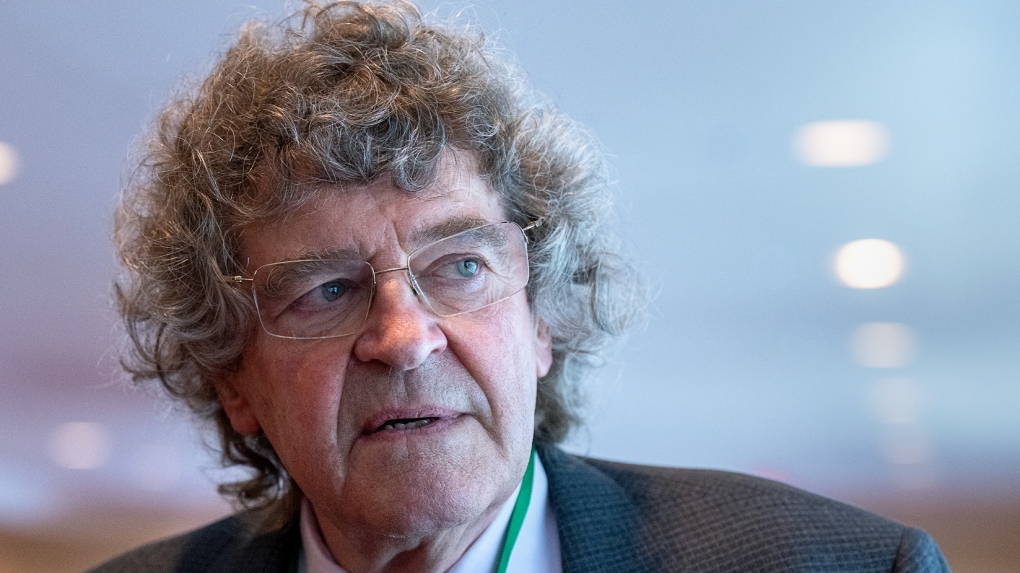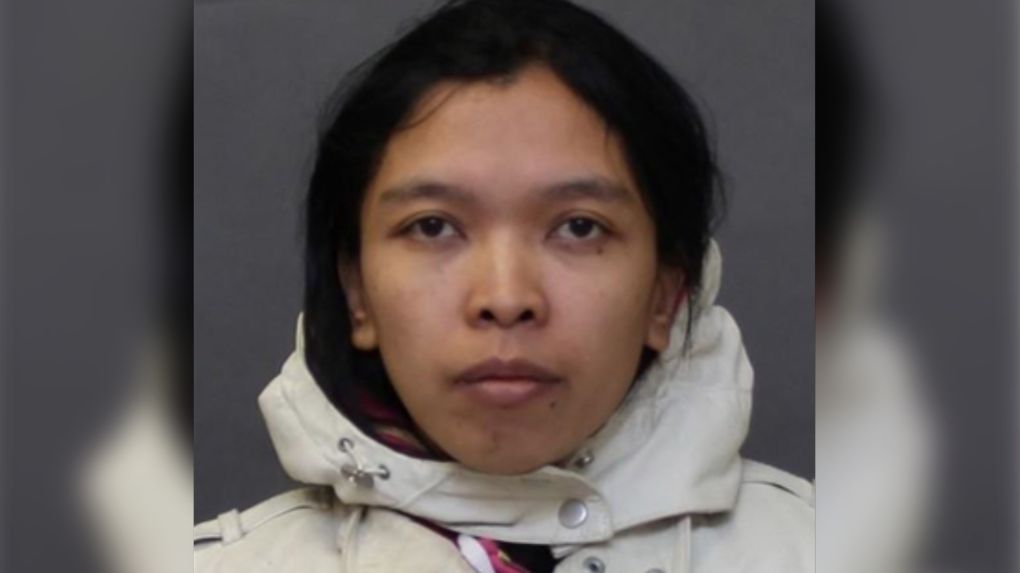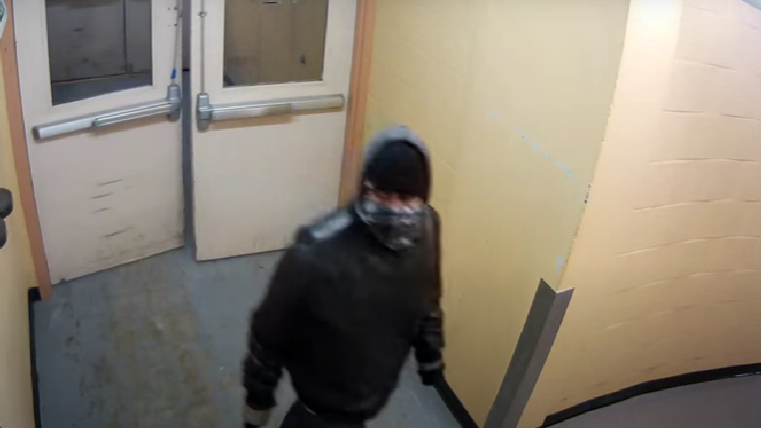How a 2016 'Mr. Big' police sting saw a Toronto murder case crumble
The case against a Toronto man formerly convicted of murder has crumbled after the court ruled that evidence obtained by covert officers in a 2016 police sting could not be used in a retrial.
On June 5, Crown prosecutors announced they were no longer seeking to pursue a charge of first-degree murder against Najib Amin in connection with the death of Sylvia Consuelo, a 34-year-old mother living in Etobicoke.
Amin was first charged in connection with Consuelo’s death after an undercover operation by the Toronto Police Service (TPS). While no forensic evidence was found linking Amin to the death, and the subsequent sting was unsuccessful in eliciting a confession from him, Amin spent more than seven years in prison after the statements he made to officers during the investigation were admitted in his May 2019 trial and he was convicted.
At a hearing at the Ontario Court of Appeal in January, Amin’s lawyers, James Lockyer and Jeffery Couse, argued that the trial judge had failed to properly safeguard against the use of the statements given to the undercover officers. While no confession was made, the utterances Amin made to police displayed "bad character," and his laywers wrote in the application that it would be "unbelievably" prejudicial for the Crown to rely on them in a retrial.
The appeal was successful and in April a three-judge panel at Ontario’s top court ordered a new trial for Amin. This time, without the evidence procured by the sting.
“In light of that, the remainder of the case [against Mr. Amin] was such that there was no reasonable prospect of conviction,” Lockyer told CTV News Toronto.
 James Lockyer speaks in Halifax on Thursday, July 14, 2022. THE CANADIAN PRESS/Andrew Vaughan
James Lockyer speaks in Halifax on Thursday, July 14, 2022. THE CANADIAN PRESS/Andrew Vaughan
Consuelo was found dead in her Jamestown apartment on Jan. 30, 2016.
She had been sexually assaulted and suffered blunt force trauma to her face and chest, according to the forensic pathology report. Mechanical asphyxiation, or suffocation, was listed as her official cause of death.
 Sylvia Consuelo, 34, pictured in a police handout photo. (Toronto Police)
Sylvia Consuelo, 34, pictured in a police handout photo. (Toronto Police)
While no forensic evidence was found linking him to the scene, Amin, who had a lengthy criminal record at the time, was quickly identified as a person of interest in the investigation into Consuelo’s death.
According to court documents, surveillance footage showed a masked man entering the building and using the elevators on the day of Consuelo’s killing. A week earlier, Amin had also been seen on surveillance footage at a nearby building in the same complex while wearing a similar outfit to the masked man, the documents said. Police searched his apartment for clothing similar to the masked man's, but found none.
 A still from the surveillance footage released by Toronto police of a suspect seen in Sylvia Consuelo's apartment building on the day of her death. (Toronto Police Service)
A still from the surveillance footage released by Toronto police of a suspect seen in Sylvia Consuelo's apartment building on the day of her death. (Toronto Police Service)
Six months later, the detectives tasked with finding Consuelo's killer launched ‘Project Sideshow,’ an undercover operation in which officers set out to build rapport with Amin by offering him employment and attempting to elicit a confession from him.
It’s known as a ‘Mr. Big’ sting: a tactic that involves undercover officers posing as members of criminal organizations. The target of the sting is offered employment within the organization – along with cash and companionship – in exchange for incriminating information and in many cases, confessions.
The procedure, created by the Royal Canadian Mounted Police in the early 1900s, is often deployed in lengthy murder investigations that run the risk of going cold. According to RCMP data, it's been used in more than 350 investigations since. Of the cases that went to prosecution, there was an estimated 95 per cent rate of conviction.
While the tactic been hailed for its efficiency in obtaining confessions, some experts and advocates have expressed concern surrounding the ethics of the practice and reliability of the evidence it procures. In many cases, the accused, once charged, claims they only confessed because they were coerced to do so. In some cases, they say they confessed because they feared for their lives.
Amin's lack of confession presented a unique set of circumstances, his lawyers argued. "The failure of a Mr. Big operation to result in a confession is unprecedented," they wrote in their appeal.
'I don't care if it's hot'
Undercover officers with Toronto police’s Special Installations Unit staged their first meet-up with Amin on June 1, 2016. This initial interaction saw Amin driven to a number of bars and adult entertainment venues by an undercover officer, referred to in court documents as Ryan.
According to transcripts later submitted as evidence, the undercover officer introduced a fictitious dilemma to Amin that day. He said that a girl named Jesse had stolen his cousin’s gun and that he needed it back.
The officer used the opportunity to seek advice on the problem, and at first, Amin suggested flattering Jesse into handing back the weapon.
“I would tell her everything she wants to hear,” he advised. But the officer said he’d tried that already and it hadn’t worked.
Then, Amin suggested offering Jesse money. The officer said he didn’t have any.
Nearing the end of their time together, the officer asked Amin again what he should do. This time, Amin suggested killing Jesse.
“How would you do it?” the officer said.
“How would I kill her? I’d strangle her fam,” Amin replied, before describing a style of killing similar to that of Consuelo’s, the documents state.
Later, after they’d driven in sight of the building where Consuelo had died, Amin spoke directly of her death to his new companion.
“There was a girl right here [...] in January. She died.” Amin told the officer.
When pressed for details, Amin told the officer “nobody knows” who was responsible.
“It’s an unsolved mystery, fam,” he said.
 The apartment complex where Sylvia Consuelo was killed is seen above in an undated photo.
The apartment complex where Sylvia Consuelo was killed is seen above in an undated photo.
Eventually, Amin confided to the officer that part of his motivation in aiding the effort stemmed from a desire for companionship.
“My whole life, I’m always looking for a person, [..] that’s like a big, serious man to put me under his wing,” Amin told one of the officers at the end of a deployment.
”And, like, I will do anything that he asks for. I don’t care if it’s hot.”
'The circle of trust'
On June 23, the undercover officers staged the murder of Jesse in a Hilton Hotel room in Toronto, according to the documents. They took photographs of the mock execution, which they showed to Amin in a meet-up two days later outside of his home.
Amin then watched as the officer placed a call to another officer, posing as an associate, and confessed to killing Jesse in Montreal and dumping her body in the Saint Lawrence River. Amin listened as the so-called associate offered to help destroy evidence of the crime.
After assuring Amin they could “deal” with such problems, the undercover officers later confronted him with allegations of his involvement in Consuelo’s death, handing him a print-out of his image captured on the surveillance cameras.
“I did my homework and I found some s**t,” the officer said before revealing the information. “I wasn’t gunna (sic) tell you any of this until I knew you wanted to be partners.”
The undercover officers then suggested that police were about to publicly announce Amin as a suspect in the murder. A $50,000 reward would be offered for any information that could lead to his apprehension, they told him.
“Wow, this is big,” Amin replied, according to the transcripts.
“It is big,” one of the officers responded. “But it's not so big that we can’t deal with it. Look at me, we can deal with this. This is the circle of trust, honesty, and loyalty, we move forward. So tell me, what the hell happened that night, tell me so we can start dealing with it.”
Amin never directly confessed to Consuelo’s murder when confronted. Despite repeated lines of questioning, he only ever admitted to being in the building at the time but said that he’d been “blackout” drunk and didn’t know anything about her death.
“I don't know, everything was a blur,” he told the officers.
While Amin maintained he never went into the unit, he told the officers he knew of a group of friends who had entered Consuelo’s home that evening. He then asked if he could take some time to speak to the four men about the events.
“Talking to more people is going to cost big problems, okay,” the officers said.
According to the transcripts, the officers then instructed Amin to stop referencing his friends as their information pertained to him alone.
“If you come back with a story about how they did this, how they did that, it doesn’t matter. It doesn’t matter to me, it doesn’t matter to you,” the officer said. “If your story is going to be what your story is, I’m telling you, from now, there’s no reason to call me, because I can’t help you.”
Amin eventually told the officer he understood and thanked him for the opportunity.
“You’re real good people. I swear to god brother. From day one, you’ve been straightforward and you give opportunities that you're trying to make us business partner,” he said. “I’m going to prove myself to you.”
Amin was left with instructions to call the officer if his story changed – but it never did. After that meeting, communication between Amin and the officers broke down.
Eventually, contact was re-established and a trip to London, Ont. was planned for November under the pretence of opening a Shisha lounge as business partners.
There, Amin was arrested and charged with first-degree murder.
READ MORE: Man, 29, arrested after woman found dead in her Rexdale apartment
The evidence obtained by the officers in Project Sideshow was deemed admissible in Amin's trial three years later. At trial, the Crown alleged him as Consuelo’s killer, claiming he’d suspected her of spreading a sexually transmitted disease to the community. The defence pointed to another suspect: a resident in the building to whom she purportedly owed a sum of money.
After six hours of deliberation, the jury convicted Amin. He was sentenced to life in prison.
'A long journey'
Amin’s appeal would not have been granted if it weren’t for a 2014 Supreme Court of Canada ruling that changed the way courts consider evidence from Mr. Big stings.
The decision was part of a highly-publicized case that saw the tactic used on a father of two young girls who drowned in Gander, Nfld. The decision recognized that Mr. Big operations can act as “a powerful incentive” in false confessions and stand to prejudice jurors and judges through bad act evidence.
“Essentially what happened after [the Hart ruling] was the Supreme Court said ‘We're not so sure about this,’ and sort-of reversed the burden to prove why the evidence should be admitted into proceedings to the Crown, which is the opposite of what it was before,” Toronto lawyer Alison Craig, who was not involved with Amin’s case, told CTV News Toronto.
In their appeal, Lockyer and co-counsel Jeffery Couse argued that, in applying the new safeguards to Amin’s case, the Crown’s evidence did not meet that bar – first, because it lacked a confession altogether and therefore did not justify the means of the investigation but also because of the breadth of bad act evidence it introduced during trial.
“Despite countless opportunities, no concession was ever elicited,” the application reads. “The lack of confession automatically tips the scales in the way of prejudice.”
“It’s been a long journey for Mr. Amin,” Lockyer said. “He spent seven-and-a-half years in custody before he was released.
The use of the Mr. Big sting is a "dangerous game," he continued. "It can result in people confessing to crimes they didn't commit because they see it as to their advantage to do so."
Lockyer said he is presently involved in three cases across Canada involving the tactic in which he's alleging wrongful convictions.
False confessions are already key contributors of wrongful convictions. When promises of employment, fortune, and friendship are added, “you’re left with a recipe for wrongful convictions,” Craig said.
“Ultimately, I think the Hart case – or, at least the issue – is going to have to be revisited by the Supreme Court."
CTVNews.ca Top Stories

Trudeau to announce temporary GST relief on select items heading into holidays
Prime Minister Justin Trudeau will announce a two-month GST relief on select items heading into holidays to address affordability issues, sources confirm to CTV News.
'Ding-dong-ditch' prank leads to kidnapping, assault charges for Que. couple
A Saint-Sauveur couple was back in court on Wednesday, accused of attacking a teenager over a prank.
Border agency detained dozens of 'forced labour' cargo shipments. Now it's being sued
Canada's border agency says it has detained about 50 shipments of cargo over suspicions they were products of forced labour under rules introduced in 2020 — but only one was eventually determined to be in breach of the ban.
'It changed my life': Montreal-area woman learning how to walk after being hit by stray bullet
A 24-year-old woman is learning how to walk again after being shot while lying in her bed in Repentigny, Que.
BREAKING ICC issues arrest warrants for Israel's Netanyahu, Gallant and Hamas leader
Judges at the International Criminal Court have issued arrest warrants for Israeli Prime Minister Benjamin Netanyahu and his former defence chief, as well as a Hamas leader, Ibrahim Al-Masri, for alleged war crimes and crimes against humanity.
Genetic evidence backs up COVID-19 origin theory that pandemic started in seafood market
A group of researchers say they have more evidence to suggest the COVID-19 pandemic started in a Chinese seafood market where it spread from infected animals to humans. The evidence is laid out in a recent study published in Cell, a scientific journal, nearly five years after the first known COVID-19 outbreak.
Donald Trump picks former U.S. congressman Pete Hoekstra as ambassador to Canada
U.S. president-elect Donald Trump has nominated former diplomat and U.S. congressman Pete Hoekstra to be the American ambassador to Canada.
REVIEW 'Gladiator II' review: Come see a man fight a monkey; stay for Denzel's devious villain
CTV film critic Richard Crouse says the follow-up to Best Picture Oscar winner 'Gladiator' is long on spectacle, but short on soul.
Alabama to use nitrogen gas to execute man for 1994 slaying of hitchhiker
An Alabama prisoner convicted of the 1994 murder of a female hitchhiker is slated Thursday to become the third person executed by nitrogen gas.
































